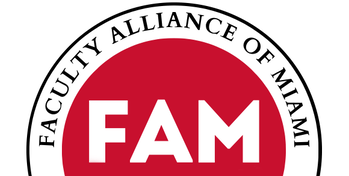Updated February 28, 2020
CAS: There is no way for faculty on a regular basis to advise on or vote on faculty composition. While continuing faculty in CAS may call a college meeting by collecting 25 signatures, they have voting rights only on curriculum and on restructuring of units, so are specifically prevented from voting on faculty composition. CAS has the weakest shared governance among the divisions.
CCA: There is no procedure for faculty on a regular basis to advise or vote on decisions on faculty composition. However, CCA continuing faculty may propose agenda items individually, so any could call for a vote on faculty composition. A special meeting can be called if 10% of faculty sign a petition. Quorum is 50% of continuing faculty; changes require a simple majority. It is clearly stated that changes to CCA governance may be made by faculty vote. CCA has the second strongest shared governance rights among the divisions.
[continued]
CEC: There is no procedure for faculty on a regular basis to advise or vote on decisions on faculty composition. CEC continuing faculty may call a special meeting with a petition signed by 25% of voting members, and topics for discussion or vote are not restricted. A quorum appears not to be required, but changes to the governance document require approval of a large majority—two-thirds.
CLAAS: There is no way for faculty on a regular basis to advise on or vote on faculty composition; however, continuing faculty may propose amendments to governance if they obtain 25 signatures on a petition. Unlike in CAS, topics that may be voted on appear to be unrestricted. Voting is on a simple majority. A quorum of half the faculty must be present to vote (tough to achieve given that they are spread over multiple campuses). CLAAS governance is still under development.
EHS: EHB continuing faculty may vote “to deliberate and adopt academic policies and procedures for the Division,” including “establishing and interpreting faculty tenure and/or promotion criteria and standards” and on “developing and interpreting faculty, administrative, and program evaluation policy.” Twenty faculty may call a meeting on a special topic. EHS faculty have the strongest governance among the divisions.
FSB: There is no way for faculty on a regular basis to advise or vote on decisions on faculty composition. FSB continuing faculty can propose an issue for vote if they collect 25 signatures to call a special meeting. A quorum of 100 must be present. Topics that may be voted on are not restricted, so presumably faculty could call for a vote on faculty composition, though it is not listed among the “customary topics” discussed at FSB meetings. FSB already voted to change its TCPL percentage from 25% to 40%, but has not yet discussed or voted on other faculty categories.
